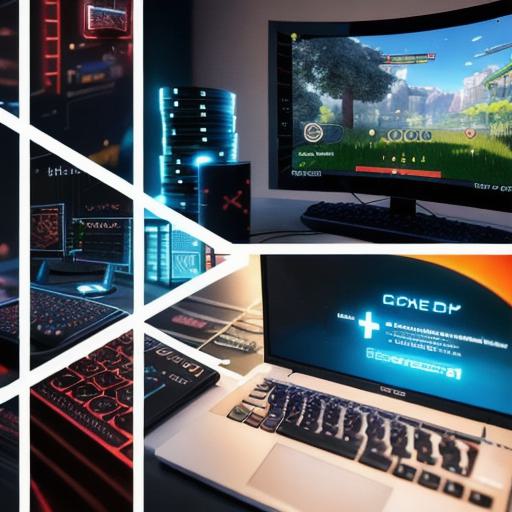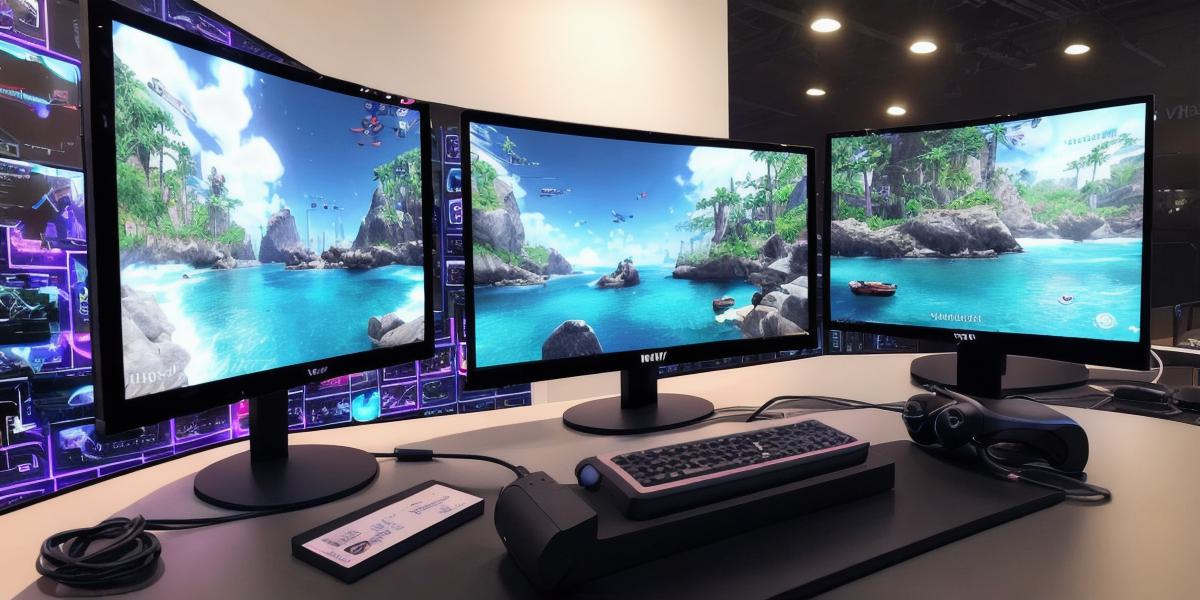Title: Revolutionizing Gaming with Unity and Blockchain Technology: A Comprehensive Guide for Game Developers
Introduction:
In recent years, blockchain technology has been gaining popularity in various industries, including gaming. By combining the power of Unity, a popular game engine, with the decentralized and secure nature of blockchain, game developers can create immersive and engaging experiences that are also secure and transparent. In this article, we will explore how Unity and blockchain technology can revolutionize gaming and provide insights into the benefits of using these technologies for game development.
I. Understanding Unity and Blockchain Technology
A. Unity: A Game Engine
Unity is a cross-platform game engine that allows developers to create games for multiple platforms, including Windows, Mac, iOS, Android, and consoles. It has a powerful scripting language, called C, which makes it easy to create complex game logic and integrates with third-party plugins. Unity also supports 2D and 3D graphics, audio, and physics.
B. Blockchain Technology: A Distributed Ledger
Blockchain technology is a decentralized and distributed ledger that allows secure and transparent transactions without the need for intermediaries. It uses cryptography to ensure that data is secure and tamper-proof, making it ideal for applications where security is paramount.
II. How Unity and Blockchain Technology Can Revolutionize Gaming
A. Decentralized Games: Players Own Their Assets
By using blockchain technology, game assets can be made decentralized, meaning that players own their assets and have complete control over them. This allows players to sell, trade, or store their assets securely on the blockchain, creating a new revenue stream for game developers.
B. Tokenization: Rewarding Players with Cryptocurrency
Tokenization is the process of creating digital assets that can be bought, sold, and traded on a blockchain. By tokenizing in-game items, game developers can create new revenue streams and incentivize players to participate in the game.

C. Gamification: Engaging Players with Real-World Rewards
Blockchain technology can be used to create gamified experiences that reward players with real-world rewards. For example, players can earn cryptocurrency by completing quests or participating in events, creating a new way for players to engage with the game and the blockchain.
III. Benefits of Using Unity and Blockchain Technology for Game Development
A. Security: Decentralized Transactions on the Blockchain
By using blockchain technology, game transactions are decentralized, making them secure and transparent. This eliminates the need for intermediaries, reducing transaction fees and improving security.
B. Speed and Efficiency: Unity’s Cross-Platform Capabilities
Unity is a cross-platform game engine that allows developers to create games for multiple platforms with a single codebase. This speeds up development time and reduces costs, making it easier for game developers to bring their games to market.
C. Flexibility: Customizable Game Logic and Scripting
Unity has a powerful scripting language that allows developers to create custom game logic and integrates with third-party plugins. This flexibility makes Unity the ideal platform for creating complex games with unique features.
IV. Case Studies: Real-World Examples of Unity and Blockchain Technology in Gaming
A. Cryptokitties: A Decentralized Game that Rewards Players with Crypto
Cryptokitties is a blockchain-based game that allows players to collect and breed unique digital cats. The game uses Ethereum, a popular blockchain platform, and has become one of the most successful decentralized games to date.
B. Fortnite: A Game that Uses Blockchain Technology for In-Game Currency
Fortnite is a popular battle royale game that uses blockchain technology to create in-game currency called V-Bucks. The game also integrates with external blockchain platforms, allowing players to buy and sell V-Bucks on the open market.
V. Conclusion: Unity and Blockchain Technology are Revolutionizing Gaming
Unity and blockchain technology provide game developers with a powerful toolset to create immersive and engaging games that are also secure and transparent. By combining these technologies, game developers can create new revenue streams, incentivize players, and create gamified experiences that reward players with real-world rewards. With the growing popularity of blockchain technology in various industries, it is clear that Unity and blockchain technology will continue to revolutionize gaming in the years to come.
FAQs:
1. What is Unity?
Unity is a cross-platform game engine that allows developers to create games for multiple platforms with a single codebase. It has a powerful scripting language, called C, and integrates with third-party plugins.
- What is blockchain technology?
Blockchain technology is a decentralized and distributed ledger that allows secure and transparent transactions without the need for intermediaries. It uses cryptography to ensure that data is secure and tamper-proof. - How can Unity and blockchain technology be used in gaming?
Unity and blockchain technology can be used in gaming to create decentralized games, tokenize in-game items, and create gamified experiences that reward players with real-world rewards. - What are the benefits of using Unity and blockchain technology for game development?
The benefits of using Unity and blockchain technology for game development include security, speed and efficiency, flexibility, and customizable game logic and scripting.
